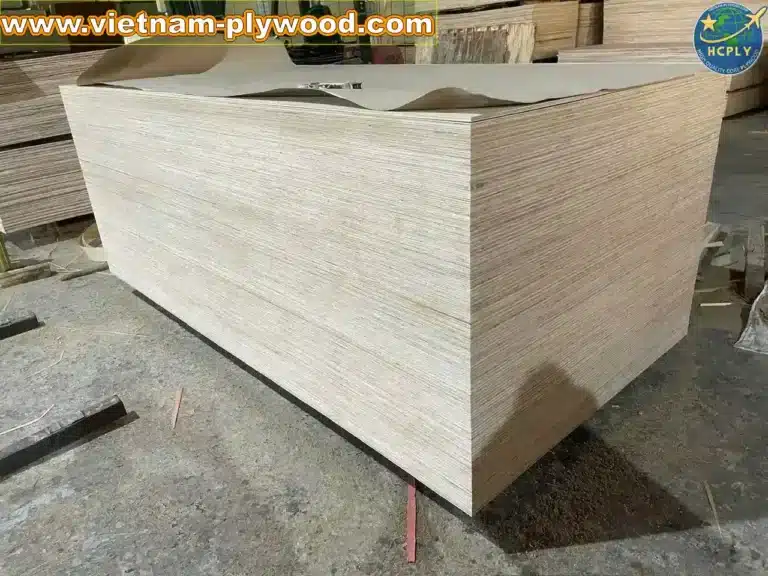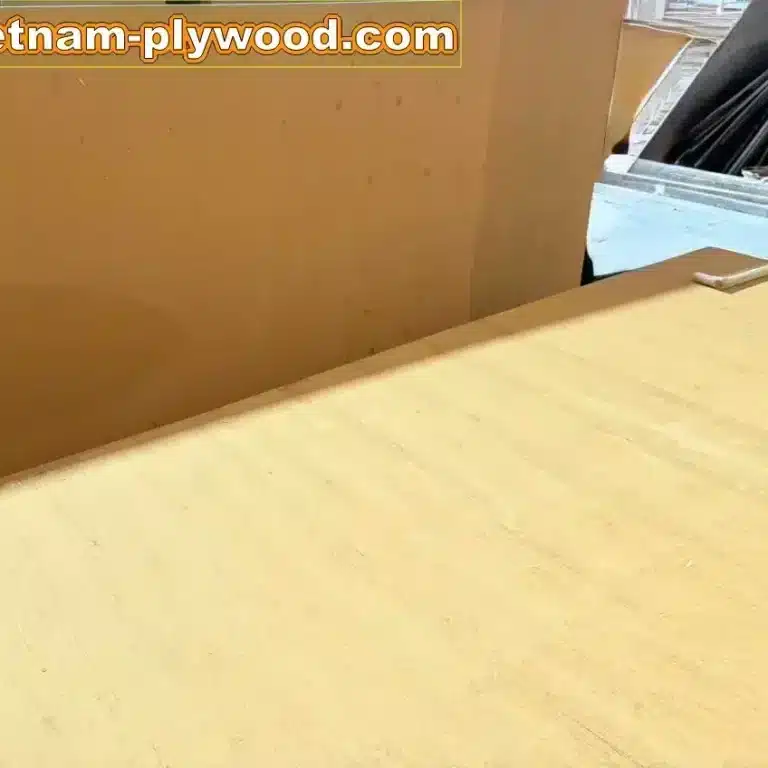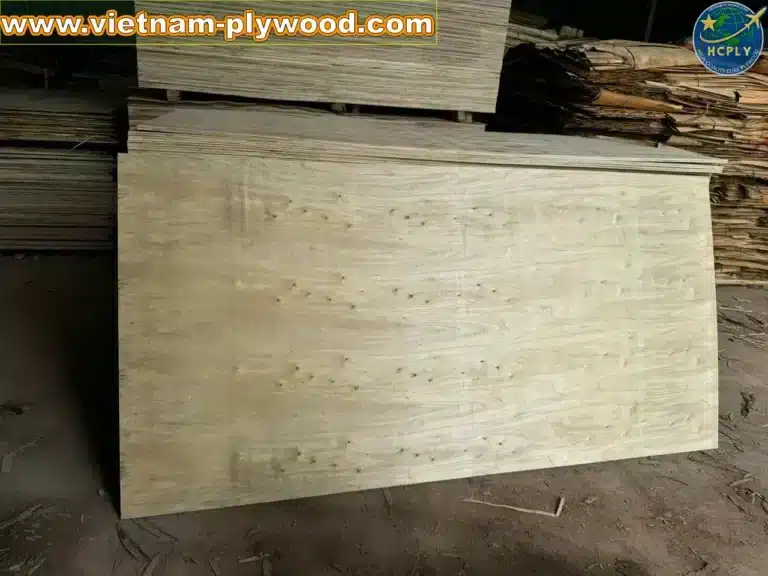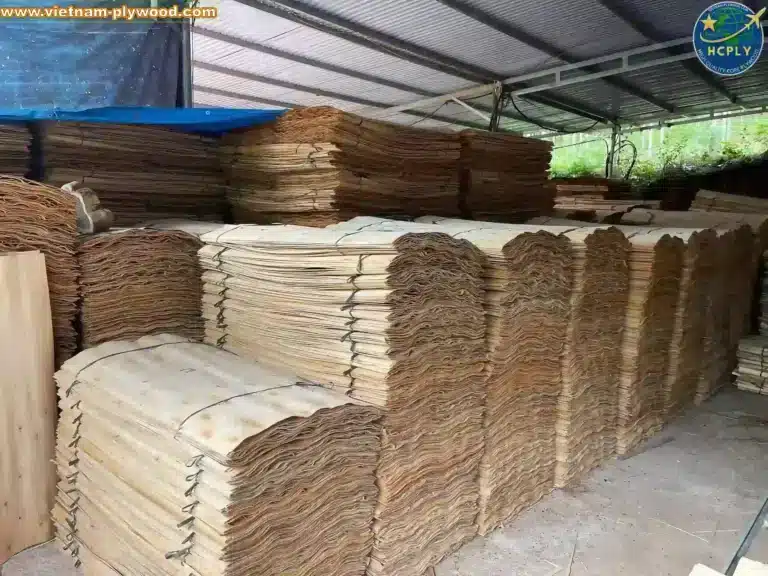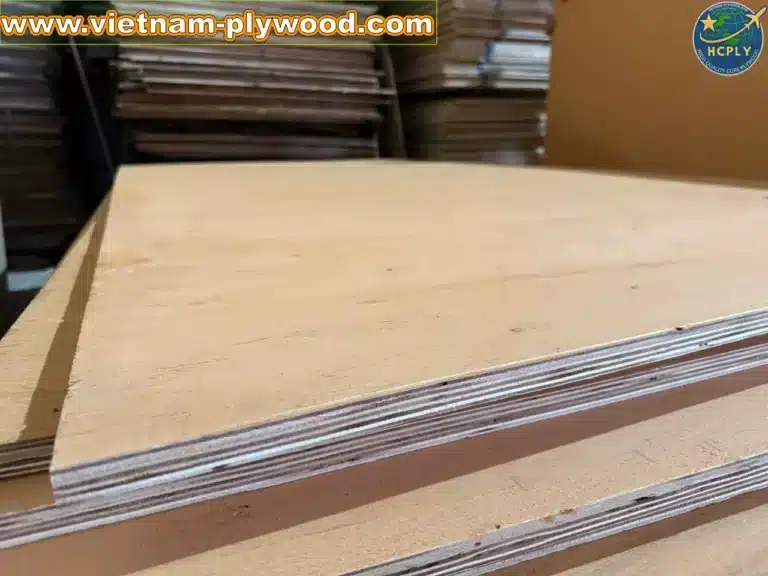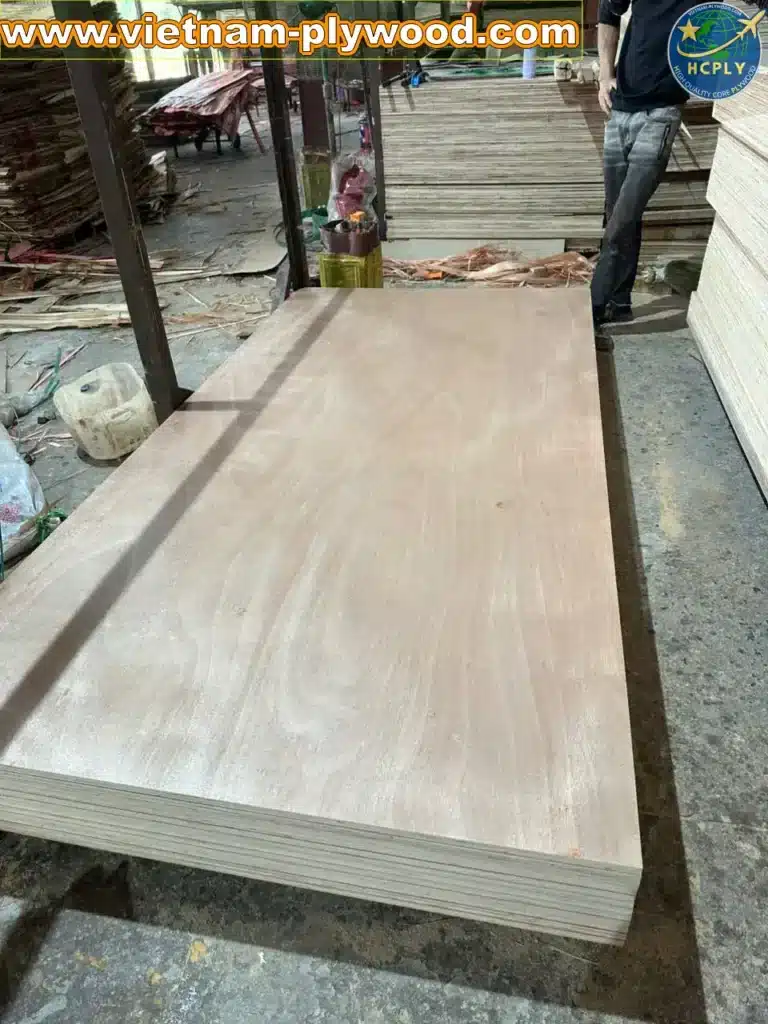How Vietnam Manufacturers Ensure Plywood Bonding Strength
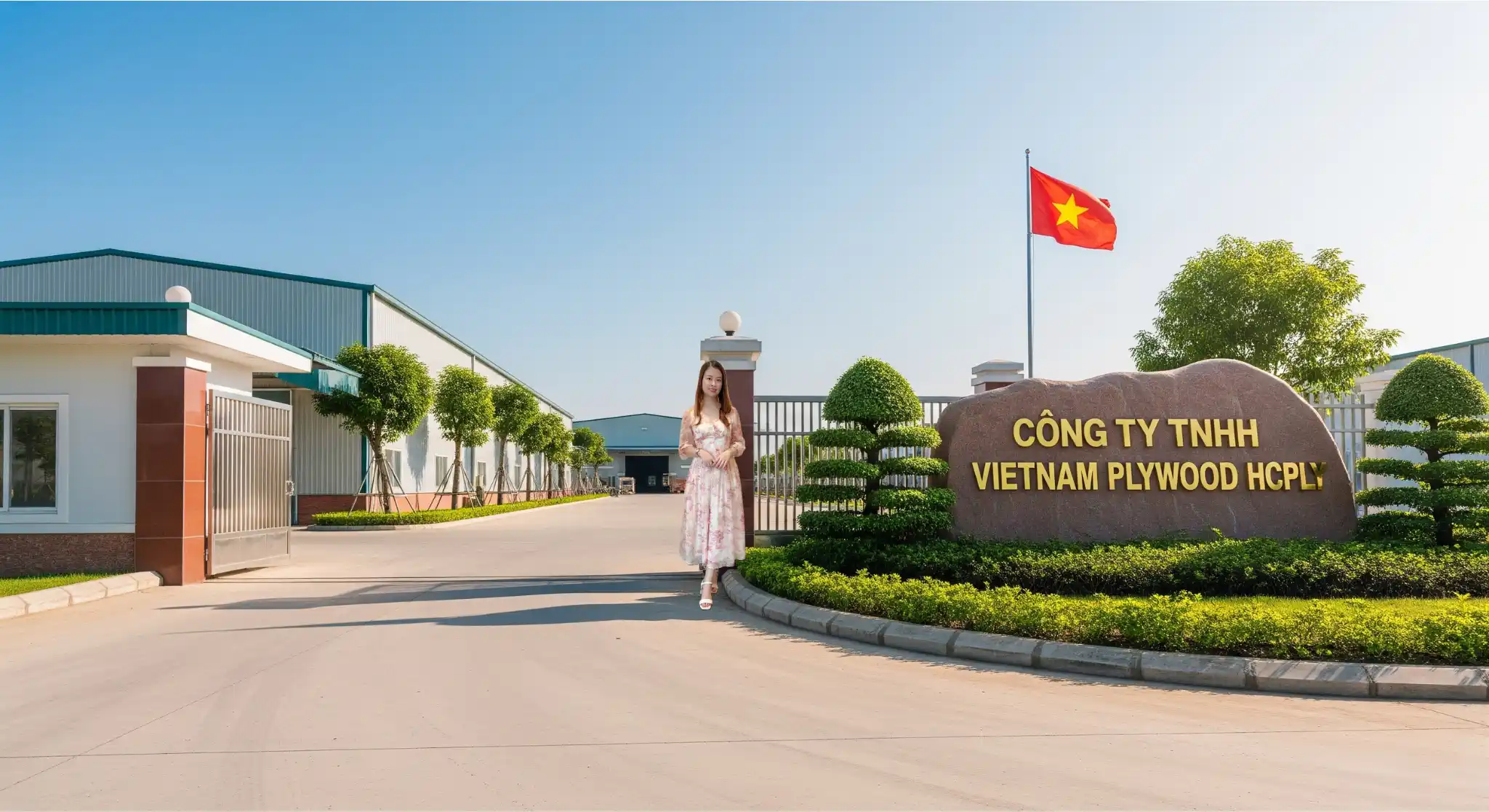
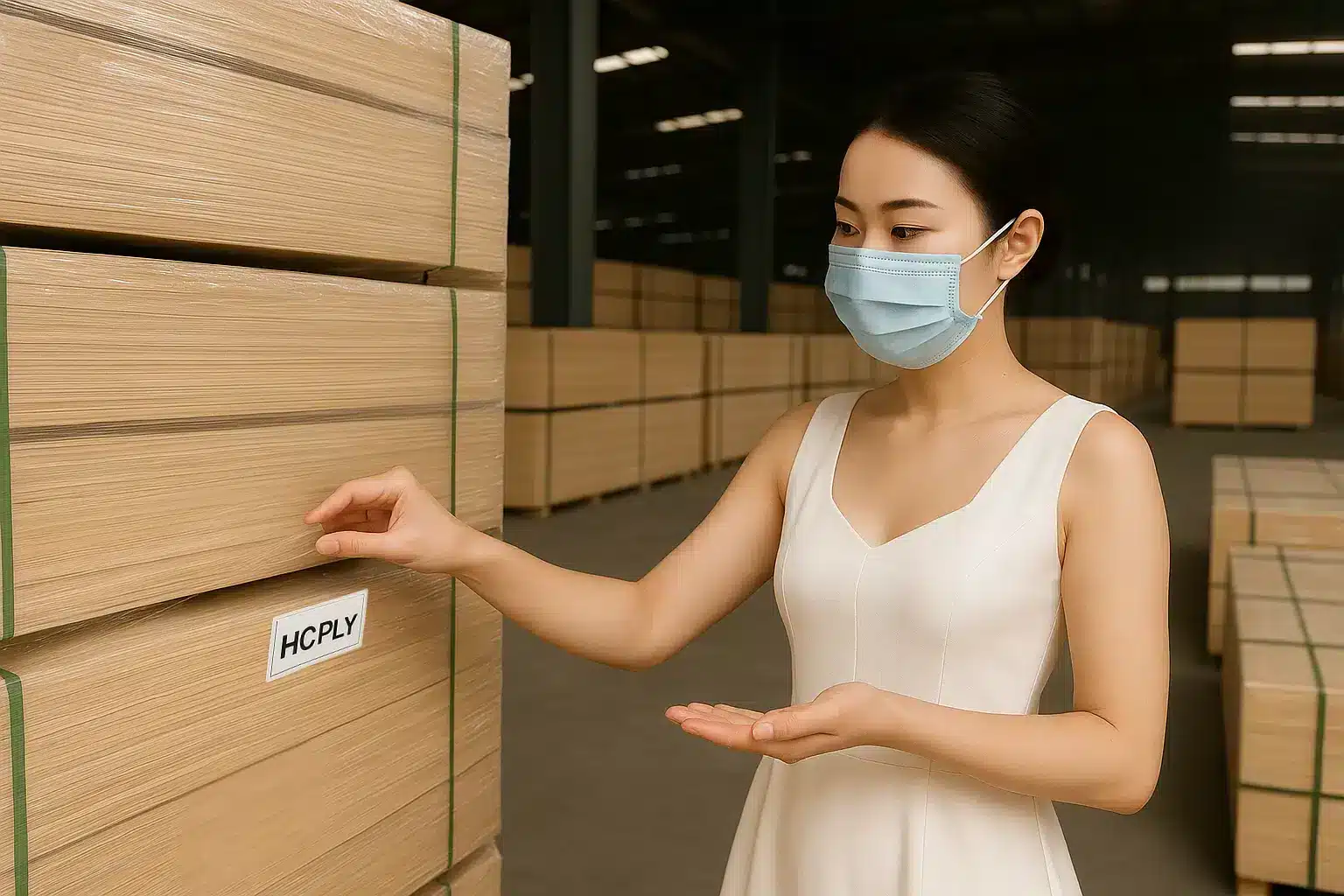
🔗 Vietnam Plywood Bonding Strength – The Hidden Core of Lasting Performance
🏆 1. Opening Insight – The Critical Role of Bonding Strength
In today’s competitive global plywood market, vietnam plywood bonding strength is not just a technical metric — it’s the invisible backbone of every sheet’s performance. Even the most beautiful veneer faces will fail if the adhesive bonds between layers cannot endure environmental stress, handling, and long-term use.
Strong bonding strength ensures plywood panels retain structural integrity, resist delamination, and deliver consistent quality from factory to final application.
🎯 2. Adhesive Types Used in Vietnam Plywood
The plywood adhesive standards Vietnam producers follow are defined by application and durability needs. Most factories use one of three primary glue systems:
- Urea Formaldehyde (UF)
- ✅ Cost-effective, smooth bonding lines
- ⚠ Best for interior use; low moisture resistance
- Common in furniture, cabinetry, and dry environment applications
- Melamine Urea Formaldehyde (MUF)
- ✅ Enhanced water resistance compared to UF
- Suitable for semi-exterior and moisture-prone indoor environments
- Often used for high-end furniture, flooring substrates, and decorative panels
- Phenol Formaldehyde (PF)
- ✅ Superior weather and boil-proof performance
- Ideal for exterior-grade, marine-grade, and structural plywood
- Preferred for projects exposed to extreme climates or water contact
💎 3. Key Factors Influencing Glue Bond Quality
Achieving top-tier plywood glue quality Vietnam requires precise control over:
- 🌫 Veneer Moisture Content – Too much or too little moisture affects adhesive penetration.
- 📏 Glue Spread Rate & Uniformity – Inconsistent application causes weak spots.
- ♨ Press Temperature & Pressure – Critical for complete adhesive curing.
- ⏳ Press Time – Must match glue curing specifications to avoid under- or over-curing.
- ⚗ Adhesive Formulation & Mixing – Incorrect ratios can drastically reduce strength.
📦 4. Manufacturing Steps that Ensure Bonding Strength
Vietnamese plywood factories follow a strict sequence to guarantee strong bonds:
- Veneer Drying – Achieving optimal moisture levels (6–12% depending on adhesive).
- Calibrated Glue Application – Using roller or curtain coaters for even distribution.
- Hot Pressing – Applying precise temperature, pressure, and time cycles.
- Cooling & Stabilization – Allowing glue lines to set before sanding or trimming.
🛠 5. Quality Control Practices in Vietnam Factories
To meet international requirements, factories conduct:
- Shear Strength Testing – According to ISO 12466 or ASTM D906.
- Boil & Vacuum-Pressure Tests – For WBP and marine-grade plywood.
- Delamination Resistance Checks – Simulating humidity and temperature cycles.
These tests are documented, and results are often shared with buyers as part of shipment QC reports.
🔍 6. Common Bonding Issues and Their Prevention
Typical problems in plywood bonding strength include:
- ❌ Delamination – Often caused by insufficient glue spread or poor pressing control.
- ❌ Weak Glue Lines – Result from over-dried veneers or wrong adhesive ratios.
- ❌ Surface Contamination – Dust, oil, or resin buildup can prevent adhesion.
✅ Prevention involves:
- Routine equipment cleaning
- Continuous operator training
- Regular adhesive quality checks
📌 7. How Buyers Can Verify Bonding Strength
Smart buyers protect their investment by:
- 📜 Requesting Third-Party Lab Reports – Independent verification builds trust.
- 🔍 Conducting Random Destructive Tests – Shear, boil, or cyclic delamination checks.
- ✍ Specifying Adhesive Type & Standard – Clearly stated in contracts to avoid disputes.
📈 8. Impact on Market Positioning & Price
Plywood with superior bonding strength costs slightly more due to:
- Premium adhesives like PF resin.
- Extended press times and higher energy costs.
- Additional QC testing and skilled labor.
However, the benefits include:
- Reduced claims and product returns.
- Stronger market reputation.
- Greater acceptance in demanding markets like the EU, Japan, and Australia.
💬 9. Expert Tip from HCPLY
“Glue lines are the silent heroes of plywood performance — strong bonds mean long-term reliability.”
— David, Export Project Leader, HCPLY
HCPLY guarantees bonding performance by:
- Running daily adhesive viscosity checks.
- Logging press parameters for every batch.
- Conducting in-house and third-party bond tests.
🌟 10. Closing Thoughts – Strength You Can Trust
The plywood glue quality Vietnam manufacturers achieve is the result of decades of process refinement and strict QC discipline.
“A chain is only as strong as its weakest link — in plywood, that link is the glue line.”
By prioritizing bonding strength:
- Exporters deliver dependable products that endure time and transit.
- Buyers receive panels that perform exactly as promised, no matter the environment.
📞 WhatsApp: +84-338616333
✉ Email: [email protected]
🌐 View All Products

